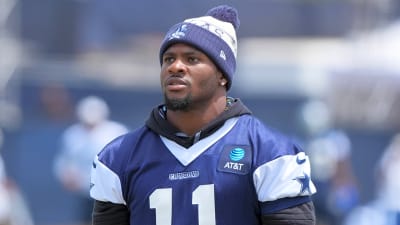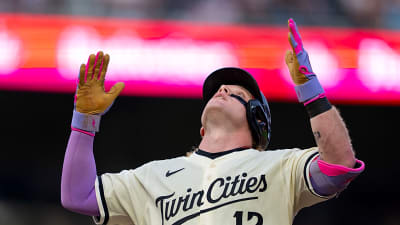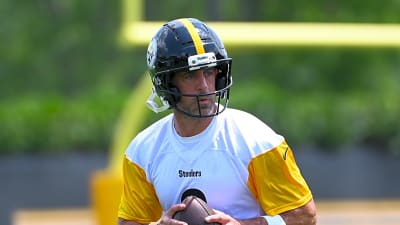
A sports history of not standing up for the national anthem
San Francisco 49ers quarterback Colin Kaepernick made waves recently when he refused to stand for the national anthem during a preseason game. Afterwards, Kaepernick explained the he wasn't going to "stand up to show pride in a flag for a country that oppresses black people and people of color." In our currently divided nation, it was a rather controversial statement to make and it will be interesting to see if anyone else is willing to make such a statement.
The 49ers had Kaepernick's back, saying that they "recognize the right of an individual to choose to participate, or not, in our celebration of the national anthem."
This isn't the first time an athlete has made honoring the national anthem a controversial endeavor. Some very high profile incidents have occurred in the past. Even small actions, such as US gymnast Gabby Douglas not putting her hand over her heart during the anthem, gets swift criticism by people offended by the slight. Others were pretty noticeable, even if it took a while to be noticed.
TOMMIE SMITH AND JOHN CARLOS
One of the most powerful stances during the national anthem in sports was when Tommie Smith and John Carlos stood on the medal stand with their fists in the air at the 1968 Summer Olympics in Mexico City. Smith and Carlos won the gold and bronze, respectively, in the 200m running event and split a pair of black gloves (among other symbolic wardrobe changes) to raise their fists in the air as the "Star Spangled Banner" played. It still is one of the most vocal political stances in the history of the Games.
Smith and Carlos were banned by the IOC and were removed from the Olympic Village. They returned home to a cold welcome and were shunned by the sporting community, though both would try for NFL careers. Australian silver medalist Peter Norman also wore a human rights badge on his jacket while on the stand with Smith and Carlos and earned scorn from his countrymen. He was held back from running in subsequent Games.
ROSEANNE BARR
On July 25, 1990, comedienne Roseanne Barr sang the national anthem prior to the Padres-Reds game in San Diego. Barr infamously yelled the anthem before grabbing her crotch and spitting on the pitcher's mound. The performance was criticized immediately, with even President George H.W. Bush weighing in and writer George Will compared it to Pearl Harbor.
There has been a history of alternative versions performed of the national anthem over the years — including a once-controversial version by Marvin Gaye at the 1983 NBA All-Star Game and Carl Lewis' famous blunder before a Nets-Bulls game — but this was obviously a joke of a performance, and Barr caught a lot of flak publicly for it.
Still, it did little to curtail her career. Her self-titled sitcom was still one of the highest rated prime-time shows at the time and has done quite well in syndication.
MAHMOUD ABDUL RAUF
Mahmoud Abdul-Rauf, who was known as Chris Jackson at LSU, is one of the more famous athletes to have issues with the national anthem. Abdul-Rauf, a Muslim convert, started to refuse to stand for the national anthem during the 1995-96 season, saying the American flag was a symbol of tyranny and oppression and standing for the anthem would conflict with his Islamic beliefs. He had been not standing for the national anthem for several months before it finally got noticed. His stance on this issue was loudly criticized and earned him a one-game suspension by the NBA.
Abdul-Rauf and the NBA came to a sort of compromise where he would stand for the anthem but could keep his eyes closed and recite Islamic prayer. Still, he was seemingly ostracized by the league. The Denver Nuggets dealt him to the Sacramento Kings and then he left the league before a brief comeback with the Vancouver Grizzlies. He has found work overseas but openly admits that his stance cost him his NBA career.
CARLOS DELGADO
In 2004, Toronto Blue Jays slugger Carlos Delgado discussed his practice of not coming onto the field during the playing of "God Bless America" during the 7th inning stretch. The song became a tradition after the events of 9/11 but had since been ended at several MLB stadiums with some teams only playing it on weekends and holidays. Delgado, who was strongly against war, including the ones that were currently being waged in Iraq and Afghanistan, felt the playing of the song was a political stand in itself that went against his beliefs. When Delgado was dealt to the New York Mets prior to the 2006 season, he promised to stand with his teammates during the song (the Mets had a policy for all players to do so) and not put himself over the team. Delgado was never punished for his stance.
Of course, the song's inclusion in baseball has also been quite controversial. It isn't the national anthem, though MLB acts like it is when they require players, personnel and fans to stand and take their caps off for its performance. There is also the religious aspect of the song that can make some people feel uneasy. In 2008, a Red Sox fan was ejected from a game at Yankee Stadium when he attempted to leave a bathroom during the song (a lawsuit was filed by the fan, a settlement was reached and the Yankees changed their policy to allow movement during the song).
Today, only the Yankees and Braves still play the song during the 7th inning stretch of every home game.
MINNESOTA TWINS
In 2015, a fan noticed that there weren't that many Twins players on the field for the National Anthem. The fan took pictures during the "Star Spangled Banner" and noticed only about five players actually came on to the field to honor the flag. When addressed on social media, the ballclub stood with the players, saying that the players have a right to not stand at attention during the national anthem and that they were preparing for a game.
ANGELS TICKET TAKERS
This works the other way. Word got out that the Los Angeles Angels were telling ticket takers to continue doing their job when the national anthem was playing. Those ticket takers felt it was appropriate to stop and salute the flag as fans and pretty much everyone at the stadium were doing. When word got out about these orders, the Angels changed their policy on the matter.
DWYANE WADE
During the 2016 playoffs, Dwyane Wade got some heat for continuing his shoot-around during the performance of the Canadian National Anthem when Wade's Miami Heat faced the Toronto Raptors. Wade said that superstition required him to make certain shots before game time and the earlier start time for the Heat-Raptors game threw him off track. The excuse didn't fly, and with the NBA already sensitive to this subject after the Abdul-Rauf issue and making an explicit rule on conduct during the playing of national anthems, Wade corrected himself immediately.
As you can see, protests against the national anthem or patriotic imagery during sporting events continue to this day. While sports fans and others continue to be outraged by such actions, there is little leagues can or will do to punish or curtail these protests as it would infringe on the rights of the players, fans or personnel that are represented and celebrated by those very patriotic symbols.
More must-reads:
- Jerry Jones is getting exactly what he wants with Micah Parsons drama
- Report reveals if Commanders intend to trade WR Terry McLaurin
- The '2024-25 NFL TD catch leaders' quiz
Breaking News
Trending News
Customize Your Newsletter
 +
+
Get the latest news and rumors, customized to your favorite sports and teams. Emailed daily. Always free!








